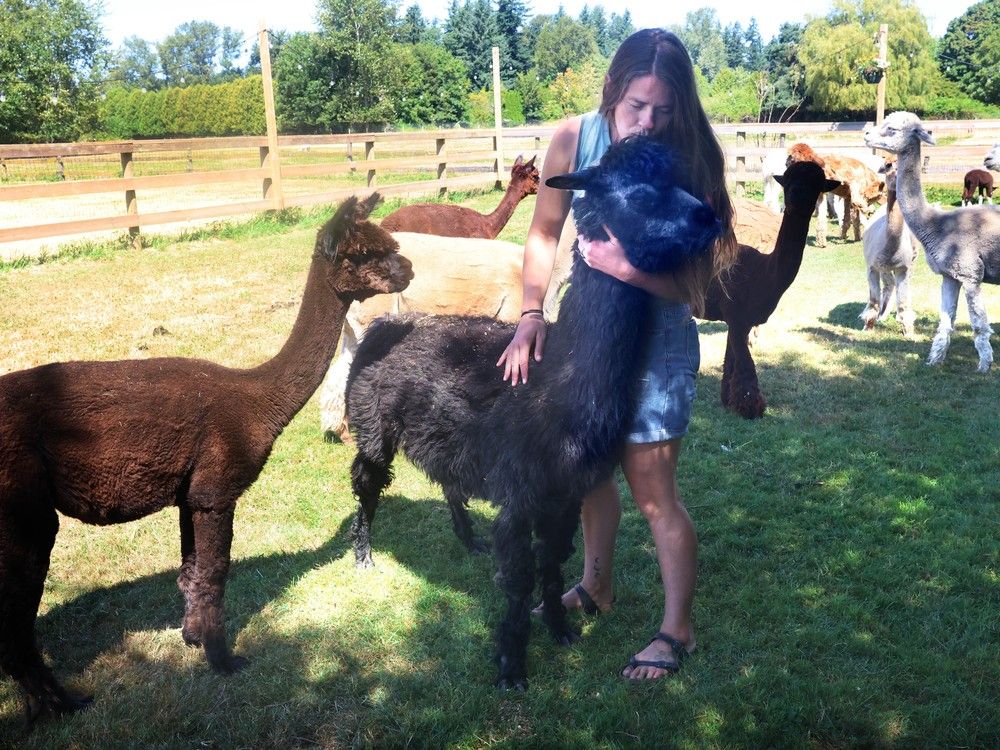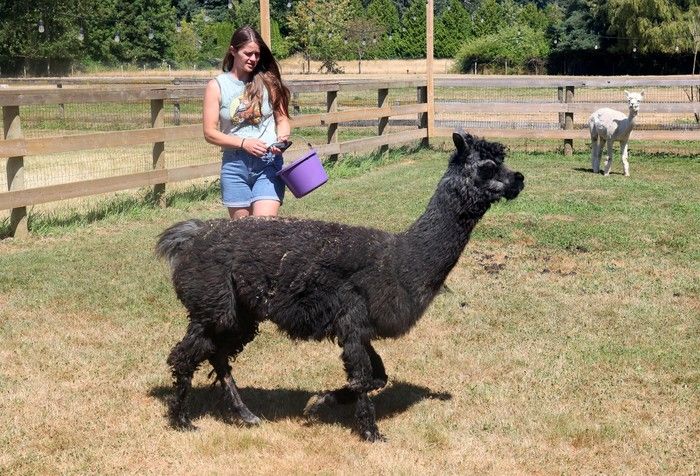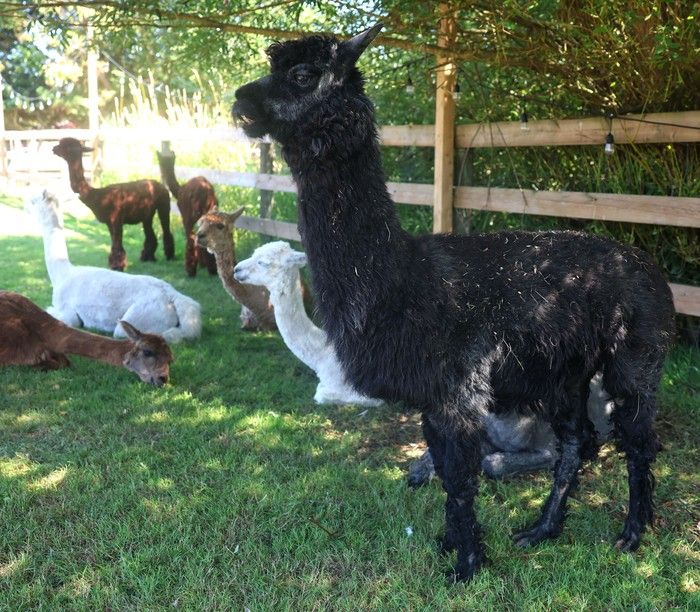
You don’t make it to nearly 28 without setting some serious boundaries, and Lolita enforces hers with pinpoint precision. One step too close and Kensington Prairie Farm’s oldest alpaca will let you know you’ve crossed the line with a well-aimed spit.
“Lolita is the first of the herd that will spit on you,” says farm manager Dee Milton, who runs the Langley operation alongside her grandparents, farm owners Jim Dales and Catherine Simpson.
She rules the alpaca farm pastures as a grizzled, patchy-fleeced elder, and now another ego-boosting title may be within reach: World’s oldest living alpaca.
The Aldergrove farm has submitted her age to Guinness World Records for verification. The current record-holder for the oldest living alpaca is 27-year-old Hawthornden Wainui of New Zealand. According to Guinness, alpacas typically live between 15 and 20 years.
But Lolita’s journey to the farm started much later. At age 19, she was rescued from a nearby property where the Kensington Prairie team had long noticed a few alpacas, including Lolita, struggling with dangerously overgrown, matted fibre.
“Alpacas gain about eight to 10 pounds of fibre every year,” Milton explains. “If they aren’t shorn annually, it can lead to serious health complications, including overheating and infections.”

Eventually, the farm sent a letter offering to help shear the animals. Instead of accepting the offer, the owners told them they no longer wanted the animals, so Kensington Prairie stepped in.
“On her second day here, we found Lolita lying down in the field. We had to lift her, carry her into a barn and nurse her back to health,” recalls Milton.
Though she joined the farm later in life, Milton says Lolita’s presence has become foundational.
“She is one of the main reasons why we started our farm’s rescue program.”
Known for its alpaca fibre products, rescue work and community events like shearing markets and farm tours, Kensington Prairie also supports a non-profit working to improve the lives of Indigenous communities in the highlands of Peru, Quechua Benefit.
Lolita’s resilience, Milton believes, comes down to personality — and a little pampering.
“She lives in a pen with our animals, such as moms and babies, that get the most attention. They have access to rich feed, including beet pulp soaked in alfalfa cubes alongside grain every day.”
Despite her no-nonsense demeanour, Milton says Lolita has a soft spot for the youngest animals on the farm. Whenever a new baby alpaca arrives, she is known to stay behind like a devoted grandmother, while their mothers graze the fields.
“Lolita really loves watching over and cuddling the babies. I think that’s a big part of why she’s still here,” says Milton.

Every morning, the farm manager says Lolita is the first animal she goes to check on.
“I’m so terrified that she’s going to pass away because of her age,” Milton says.
“There’s nothing that parallels when an animal isn’t thriving, then you put all your love and dedication into turning that around, and they continue to thrive. It’s such a special bond.”
But every morning, Lolita is still around, greeting the day with her usual grumpy charm and her unmistakable snaggle tooth.
“She’s thriving, somehow,” says Milton. “She’s just a little funny looking.”
This fall, the farm plans to throw Lolita a public party to celebrate Lolita’s 28th birthday.